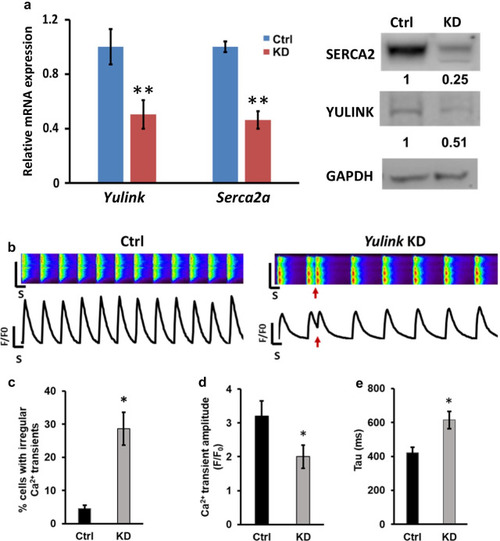
Yulink KD reduced Serca2 expression and induced irregular Ca2+ cycling in mouse HL-1 cardiomyocytes. a Representative line-scan images and spontaneous Ca2+ transient in Ctrl and Yulink KD mouse HL-1 cardiomyocytes. Red arrows indicate arrhythmia-like waveforms observed in Yulink KD HL-1 cardiomyocytes, but not in control. b Quantification of percentages for control and Yulink KD HL1 cardiomyocytes exhibiting irregular Ca2+ transients (n = 40). c The Ca2+ transient amplitude of HL-1 cardiomyocytes for Ctrl and Yulink KD confirms Yulink KD HL-1 cardiomyocytes exhibits a lower Ca2+ transient amplitude (n = 40). d The time constant for Ca2+ decay (Tau) of HL-1 cardiomyocytes for control and Yulink KD show that the time constant for Ca2+ decay is significantly larger in Yulink KD than in control HL-1 cardiomyocytes (n = 40, *p < 0.05, Student’s t test). e HL-1 cardiomyocytes were subjected to Yulink KD using Yulink-shRNA, and the effects on Yulink and Serca2 expression were assayed by qPCR and Western blot. Relative expression values were normalized to those of cells injected with control (Ctrl) vector (n = 3 for each group, **p < 0.01, Student’s t test)
|